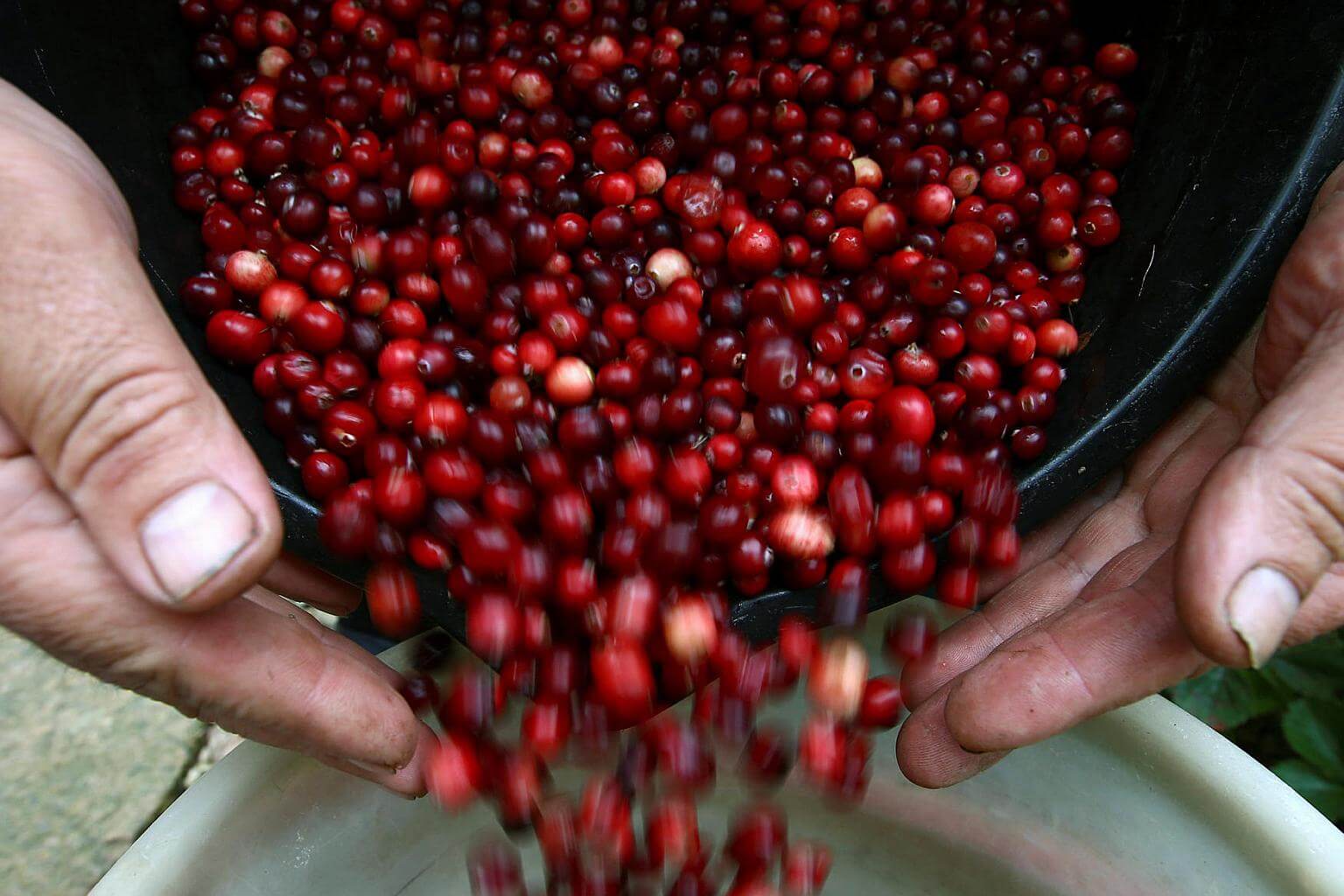Cure for urinary tract infections? It's not cranberries, study shows
Sign up now: Get ST's newsletters delivered to your inbox

Drinking buckets of cranberry juice will not cure, and even prevent bladder infections, studies show.
PHOTO: REUTERS
Follow topic:
(NYTIMES) - Misconception: Drinking buckets of cranberry juice can cure, and even prevent, bladder infections.
Actually: You may enjoy the taste (see: vodka) but it won't cure and, probably, won't prevent recurrence.
This purported remedy is centuries old and there is a considerable amount of research investigating it. While some studies suggest that cranberry may reduce repeated infections in younger women, it is certainly not a treatment for an active case. The gold standard for treatment is antibiotics. Sometimes doctors just recommend rest and ibuprofen.
"I was hoping it would work," said Dr Manisha Juthani-Mehta, an infectious disease specialist at the Yale School of Medicine, and the lead author of a study published Thursday (Oct 27) in the journal JAMA, which showed no reduction in urinary tract infections for female nursing home patients who took standardised, high-dose cranberry capsules - the equivalent of 20 ounces of juice daily - for a year.
"I'm not sure it's worth spending money on, particularly for patients on a fixed income," she said.
In a strongly worded editorial also in JAMA, Dr Lindsay E. Nicolle, an expert on urinary tract infections, or UTIs, at the University of Manitoba, concluded that the evidence is "convincing that cranberry products should not be recommended as a medical intervention for the prevention of UTI". She added that "clinicians should not be promoting cranberry use by suggesting that there is proven, or even possible, benefit".
She concluded: "It is time to move on from cranberries."
By some estimates, at least 50 per cent of women will have at least one urinary tract infection over a lifetime. In women of reproductive age, symptoms include a frequent need for urination and devastating pain while doing so. Older women, particularly those over 65 and frail enough to require nursing home care, can seem asymptomatic, but have fever, fatigue and malaise. Older men, too, may be susceptible, because of problems associated with enlarged prostates.
The risk factors in younger women include sexual activity and the use of spermicide.
Dr Kalpana Gupta, a professor of medicine at Boston University School of Medicine and an expert on UTIs in women of reproductive age, explained that sex "promotes the movement of bacteria into the urethra". Women, she added, "have a short urethra, compared to men, so once bacteria get there, they easily can go to the bladder."
Spermicide, she said, can exacerbate the condition, because it can get rid of "good bacteria", allowing the bacteria that cause UTIs to predominate.
Dr Gupta, who is head of the Infectious Diseases Society of America's guideline committee on treating UTIs, was emphatic in at least one regard: "UTI is not a hygiene-related issue," she said, noting there was a stigma associated with it. "There's no evidence that shows not wiping properly or wearing underwear that's too tight leads to UTIs."
Many doctors recommend that women prone to recurrences urinate after sex. "There may be some value to voiding after intercourse and the flushing could be protective," said Dr Gupta, "but it's never been rigorously studied."
There are several theories about why cranberries have come to be seen as having some effect on UTIs. It is certainly one power-packed little berry. Researchers at Rutgers found that cranberries contain proanthocyanidins, a condensed substance which seems to interfere with the adherence of UTI-causing E. coli bacteria to the lining of the urinary tract.
Dr Gupta, who said she is not ready yet to walk away from cranberries, suggested that some women with recurrent UTIs may still want to discuss cranberry treatment with their doctors.
Certainly in drinking cranberry juice, patients are hydrating. "The juice has diuretic properties," said Betsy Foxman, an epidemiologist at the University of Michigan School of Public Health, "and urinating more is part of the body's way of getting rid of infection."
In researching an alternative to antibiotics among nursing home patients, Dr Juthani-Mehta found that Native Americans had been using cranberries as a remedy for UTIs as well as other ailments for thousands of years. They passed on the lore to the Pilgrims, she said.
Cranberry juice in its earliest, purest form was far more astringent than the version now sold commercially. One problem with some studies, say critics, has been compliance: "It's hard to drink that much cranberry juice," said Dr Foxman. She has studied cranberries and UTI rates in college-age women (no reduction) as well as in a specialised group: post-gynecological surgery patients with urinary catheters, who had a 50 per cent reduction rate.
Capsules are easier, but are not regulated, so dosing is inexact. Many researchers believe that if cranberry has some protective effect, the amount needed would be so great as to be impractical for a wholesale recommendation. Even so, the new JAMA study, which included a very high and standardised dose, showed no effect.
Postmenopausal women are particularly at risk for UTIs because of hormone depletion, which can leave the bladder more vulnerable to bacteria. Dr Juthani-Mehta encourages postmenopausal women to stay hydrated and even to discuss with their physicians whether to use estrogen cream, which has shown some efficacy in reducing UTIs.
Dr Gupta, who acknowledges the mixed research results, remains concerned about the use of antibiotics as a preventive treatment. "People want something that doesn't lead to antibiotic resistance and empowers women to care for their UTIs," she said. "We do need something better."

